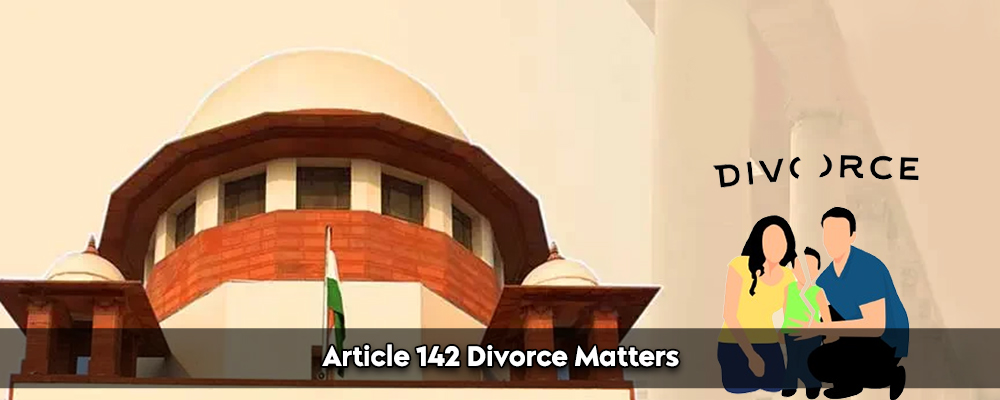A major precedent in law came into effect when the Supreme Court of India used the virtue of Article 142 of the Indian Constitution to award a divorce based on mutual consent. The case emphasizes the Court’s inherent capacity to take advantage of its powers when needed, along with upholding the concepts of justice and fairness.
Article 142: Constitution of India
The Supreme Court has discretionary power under the virtue of Article 142, which allows it to exercise its jurisdiction and issue any decree or order required to ensure that any case or matter before it is thoroughly handled.
Need A Legal Advice
The internet is not a lawyer and neither are you. Talk to a real lawyer about your legal issue

Mutual Consent Divorce: About
Section 13B of the Hindu Marriage Act of 1955 guarantees the right to a divorce through mutual consent. The family court, which has the authority to issue a divorce judgment under Section 13B, may receive a joint petition from the spouses seeking a divorce under that section. The circumstances in which the spouses may submit a petition for the granting of a divorce by mutual consent are specifically stated in this section.
The parties need to have lived apart for at least a year in order to file for divorce on the foundation of mutual consent.
Role of the Judiciary: Supreme Court
- In the case of Mansi Khatri v Gaurav Khatri, despite the couple’s desire for a mutually agreeable divorce, both parties had stated that they were open to settling their differences through mediation. The matter was addressed by the Supreme Court Mediation Center, but the mediation failed to produce an agreement regarding permanent alimony.
- When a woman petitioned the Supreme Court to transfer her divorce case under the Hindu Marriage Act from Indore to Lucknow, the judge panel observed that the marriage had irretrievably broken down. Therefore, in the interest of full justice, the court invoked its authority under Article 142 of the Indian Constitution to grant the parties a mutually consenting divorce. All cases that the parties had brought against one another were also closed by the court.
Legal Justification of the Judgement
The legal justification for applying Article 142 in this mutually agreed-upon divorce case was to uphold the rights and dignity of those who are divorcing after unfair legal process hurdles have hindered their case. The Supreme Court maintained the values of fairness and equity while correcting the mistakes made by the lower court.
Article 142 of the Constitution of India: Importance
- The court has exercised its authority under Article 142 to protect people’s rights and maintain constitutional ideals whenever the government or legislature has failed to do so.
- It can repair statutory gaps because Article 142 designates it as the defender of the Constitution.
- Additionally, it creates a system of accountability and oversight for the other branches of government.
- The Supreme Court is granted exclusive authority under Article 142 of the Constitution of India to administer “complete justice” between the parties in situations where the law may not offer a remedy.
The Indian legal system will be greatly affected by the decision of the Supreme Court to activate Article 142 of the Constitution in this specific instance. It is an indication that administrative difficulties should not be a justification for postponing or refusing justice and that the Supreme Court has the authority to act where subordinate courts lack the capacity to provide it in the shortest possible time.
The outcome additionally highlights the importance of Article 142 to ensure that the right thing is carried out even in cases when there doesn’t seem any particular law that deals with the issue at hand. In the unlikely scenario that the Supreme Court chooses to use Article 142 in future years to deal with legal disparities, this case sets up a precedent.
One can talk to a lawyer from Lead India for any kind of legal support. In India, free legal advice online can be obtained at Lead India. Along with receiving free legal advice online, one can also ask questions to the experts online free through Lead India.




